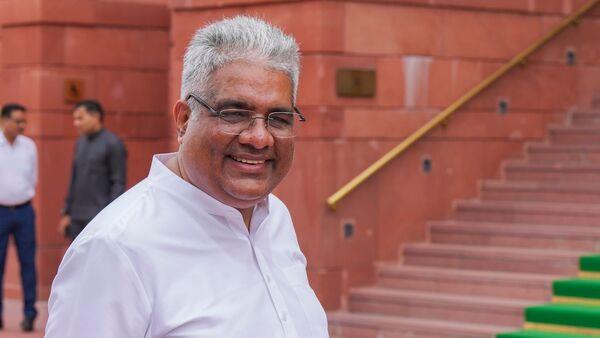
India To Release Biodiversity Target At Global Conference
The Kunming-Montreal Global Biodiversity Framework (KMGBF), a multilateral treaty, which aims to halt and reverse biodiversity loss by 2030, was adopted in December 2022 at the 15th meeting.
Also read |Easing ECB norms, making green bonds more attractive to aid climate financing
“The 2030 plan is international; it's not any individual country's liability. In 1974, we had 9 parks across 9,000 square kilometres. We have increased it up to 58,000 square kilometres. In 30 years, we have increased the number of our elephant reserves to 33,” union environment, forest and climate change (MoEFCC) minister Bhupendra Yadav told reporters on Monday.
KMGBF supports the achievement of the Sustainable Development Goals (SDGs) and builds on the Convention's previous strategic plans, sets out an ambitious pathway to reach the global vision of“a world living in harmony with nature” by 2050. Among the framework's key elements are 4 goals for 2050 and 23 targets for 2030.
Updated plan“India has updated its national biodiversity strategy and action plan which existed has been updated as per the KMGBF framework, and it has been done in sync with the whole of government or the whole of society approach. The document has been ready. Other than this, there are national biodiversity targets which have been uploaded on the portal and we will try to release them during the COP,” said a senior official who attended the press briefing and will attend the biodiversity COP16 in Colombia along with the MoS.
Bhupendra Yadav will not participate in it because of the state assembly elections in Maharashtra. However, he will attend the main COP scheduled for 11-22 November in Baku, Azerbaijan.
Also read |Prime minister Modi calls for international cooperation on green hydrogen
There are two mandatory obligations of CBD on all Parties--preparation of national biodiversity strategy and action plans (NBSAPs) as provided for in Article 6 and preparation of national reports as provided for in Article 26.
Article 6 of CBD enjoins upon all parties to prepare national strategies, plans or programmes for conservation and sustainable use of biodiversity or NBSAPs, and to integrate conservation and sustainable use of biodiversity into relevant sectoral and cross-sectoral plans, programmes and policies.
With the adoption of the strategic plan for biodiversity 2011-2020 including the 20 Aichi biodiversity targets, parties to the CBD were required to revise and update the NBSAPs by integrating the national targets.
Targets developedAccordingly, 12 national biodiversity targets (NBTs) in line with 20 Aichi Biodiversity Targets have been developed by India, and the NBAP, 2008 updated in 2014. Associated indicators and monitoring framework has also been developed by India to provide a roadmap for achieving the NBTs.
The G20 interministerial meeting took place earlier this month and the secretary of MoEFCC Leena Nandan who led the Indian delegation, said that the environment and climate working group under the Brazil presidency is taking the 2023 G20 priorities forward.
It is focusing on emergency and preventive adaptation to extreme climate events, oceans, waste, circular economy, payment for ecosystem services, and the firstly introduced land and forest issues by India during its G20 presidency last year. It also arranged a side event on one of the agendas of India's Mission LiFE.
“Our position in G20 reflects our larger position on climate change which means that we talk about solutions that the world needs and support developing countries in terms of technology, finance and countries to come up with their own targets for meeting the climate change challenges. The focus is that all countries must continue prioritising but within their national circumstances. National circumstances alone will show how a country will fix its priorities and move on its low emission trajectory,” Nandan said on the sidelines of the press conference when asked about India's stand at the G20 summit which is scheduled for 18-19 November in Rio de Janeiro. Legal Disclaimer:
MENAFN provides the
information “as is” without warranty of any kind. We do not accept
any responsibility or liability for the accuracy, content, images,
videos, licenses, completeness, legality, or reliability of the information
contained in this article. If you have any complaints or copyright
issues related to this article, kindly contact the provider above.

















Comments
No comment